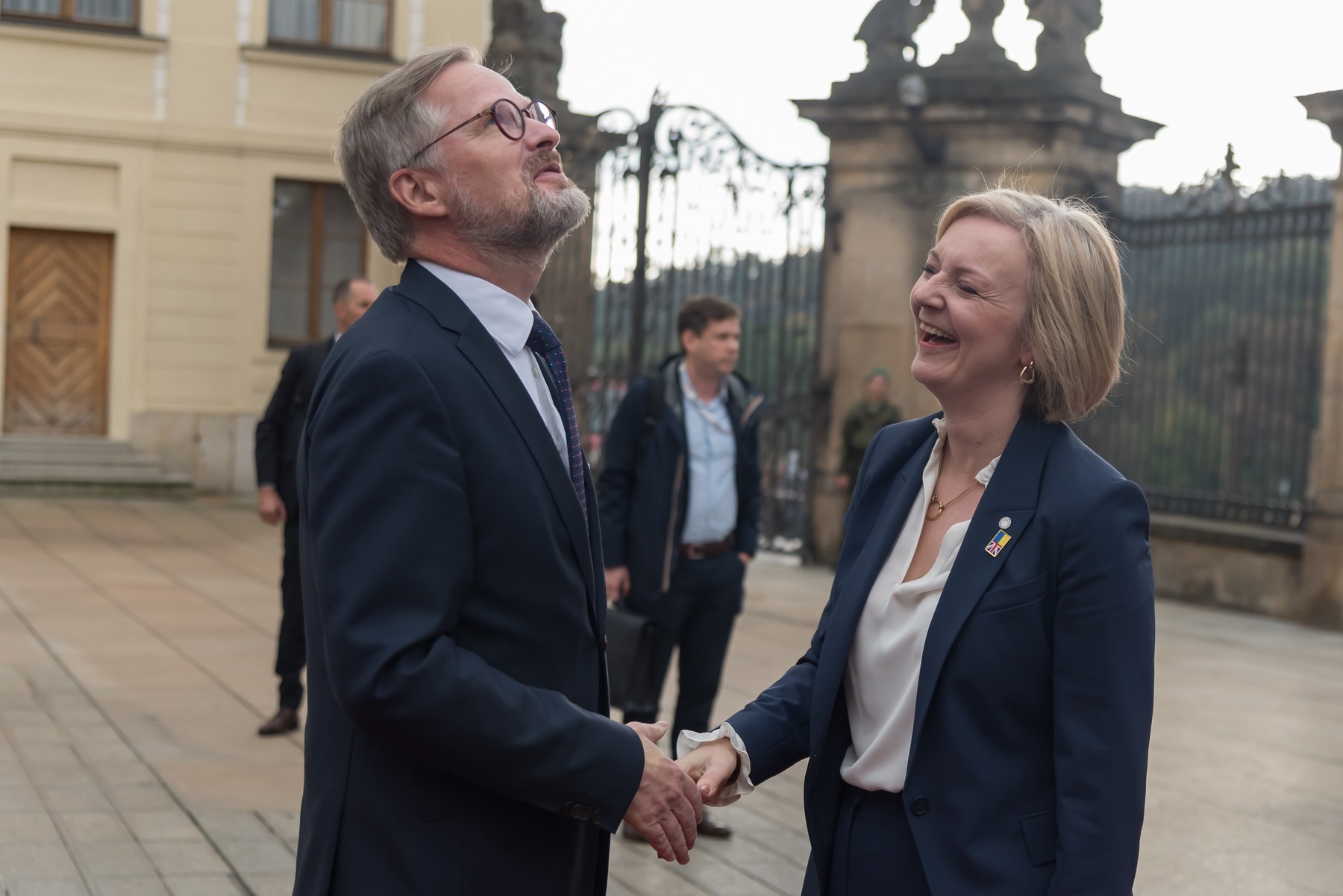
Leaders of the European Union and other European nations, including Britain and Turkey, met on Thursday to discuss security and energy emergencies affecting them following Russia’s invasion of Ukraine, a symbolic summit that underscored Moscow’s isolation, Reuters reported.
The meeting in Prague was the inaugural meeting of the European Political Community (EPC), the brainchild of French President Emmanuel Macron, which brings together the 27 EU member states and 17 other European countries as equals.
Some of the countries are waiting to join the bloc, while the other, the UK, is the only one that will ever leave the bloc.
Danish Prime Minister Mette Frederiksen stayed home for a key parliamentary debate, reducing the number of leaders to 43 from the 44 originally expected.
The meeting at the Prague Citadel was a major show of solidarity for a continent mired in multiple crises, from the security fallout from the war in Ukraine to an energy crisis and a looming recession that has dashed hopes for a robust recovery from the COVID-19 crisis.
“This meeting is a way of finding a new order without Russia,” EU foreign policy chief Josep Borrell said, adding that Moscow cannot always be ruled out, but that President Vladimir Putin’s Russia “has no place” at the moment.
President of Ukraine Volodymyr Zelenskyi, speaking at a video conference, called on the leaders to transform the new political community into the “European Community of Peace”.
“Let today be the starting point. The point from which Europe and the entire free world will move towards a peace guaranteed to us all. It is possible,” he said, urging leaders to “direct all possible forces in Europe to end the war.” “
British Prime Minister Liz Truss was under heightened scrutiny in Prague, whose presence there gave hope for a rekindling of relations between Brussels and London, given the conflict between the two sides over trade deals for Northern Ireland after Brexit.

Truss and Petr Fiala / PHOTO SOPA Images / ddp USA / Profimedia
Truss said European leaders had united in solidarity with Ukraine and would leave the summit “with a greater collective resolve to confront Russian aggression.”
“What we saw in Prague is a strong manifestation of solidarity with Ukraine and for the principles of freedom and democracy,” she said.
The EU representative said that Truss’ participation was encouraging.
“The impression, in my opinion, is quite positive that Great Britain has taken up these topics: security, stability, economy, migration and supply and support to Ukraine,” the official said.
Russia’s war in Ukraine will undoubtedly remain at the center of the new political community, as the leaders of this embryonic body will likely meet next in Moldova, Ukraine’s small and troubled neighbor.
However, it is not known how strong the future of this political community will be, given that some have already abandoned this forum.
The meeting of the prime ministers of #Armenia and #Greece, @NikolPashinyan and @kmitsotakis took place within the framework of the summit of the European Political Community, which was held in #Prague. pic.twitter.com/ifHXN2f60n
— Government of Armenia (@armgov) October 6, 2022
Its sheer size will be a major obstacle to concrete policies, as will its political and cultural diversity and the traditional rivalries between many of its members, from Armenia and Azerbaijan to Greece and Turkey.
#Pashinyan trying to explain something#Armenia #Azerbaijan #Armenian #prague pic.twitter.com/g6l75PveTe
— Dailyaz (@dailyaz1) October 6, 2022
Quadrilateral meeting of Pashinyan-Aliev-Michel-Macron in #Prague ended
The meeting between Pashinyan and Erdogan has begun. pic.twitter.com/7ESwLB2fsk
— Zhora (@TheScarmind) October 6, 2022
Ahead of the summit, Borrell said clarity was still needed on the EPC’s rationale, the final composition of the forum, its relationship with the EU, how it should make decisions and even whether it should have its own budget.
Leaders of the 27 EU countries will meet in Prague on Friday to resolve tensions over Germany’s 200 billion euro energy support package.
EU countries will also try to resolve differences over how to cap gas prices to limit rising energy costs that are fueling inflation across the bloc.
In addition, EU member states finally approved an eighth round of sanctions against Moscow over its invasion of Ukraine, but said the implementation of a price cap on Russian offshore oil, included in the package, needed more work.
Source: Hot News RO
Robert is an experienced journalist who has been covering the automobile industry for over a decade. He has a deep understanding of the latest technologies and trends in the industry and is known for his thorough and in-depth reporting.